
Healthy Individuals & Communities
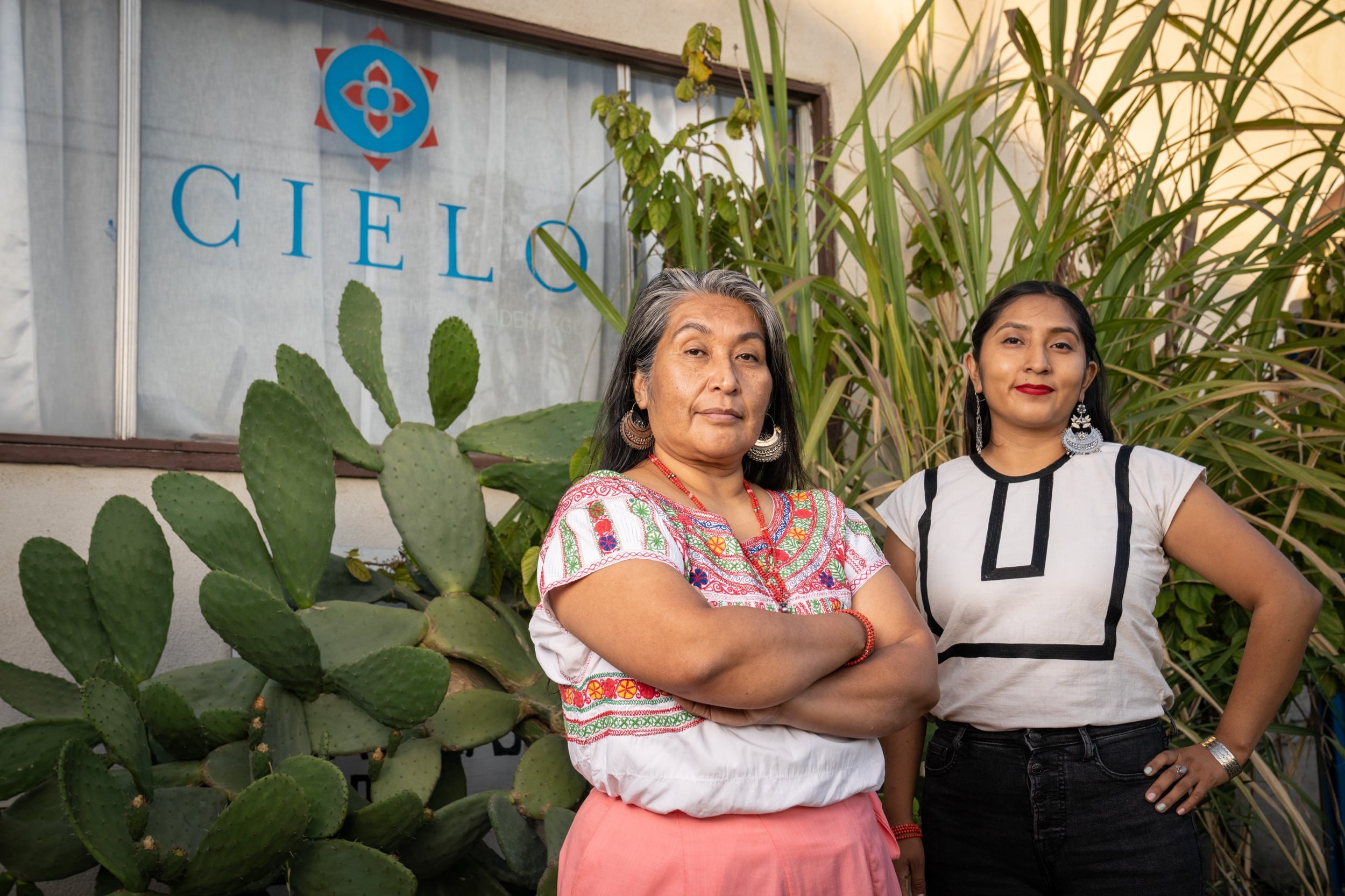
Photo from Comunidades Indigenas en Liderazgo, one of the I-Belong Fund’s 2023 inaugural Community of Practice Power Builder grantees.
Tides Foundation launched the Immigrants Belong (I-Belong) Fund to provide frontline BIPOC and immigrant-led organizations with resources to develop innovative, pro-immigrant media and storytelling content. The new fund aims to disrupt harmful and false narratives about immigrants that foster exclusion and fear. Alex Rojas, Paola Kim, Dawn Kwan, and Ashley Black, members of I-Belong’s Independent Advisory Committee, share why I-Belong is critical to building a pro-immigrant future.
What sparked the vision for the Immigrants Belong (I-Belong) Fund?
Rojas: The vision for Immigrants Belong (I-Belong) began in 2019, when there was a new rise in xenophobic rhetoric about travel bans and border walls. That year, I participated in a learning delegation to San Salvador, El Salvador, Juárez, Mexico, and El Paso, Texas, to understand what was happening to refugees and asylum seekers in these border cities. I participated in this delegation with border police chiefs, nonprofit leaders, NGOs, and philanthropists. In Juárez and El Paso, in particular, I witnessed a lack of cultural understanding and empathy. Immigrants who had sold all their belongings to escape corruption and gang strongholds were participating in immigration hearings where translators were mistranslating their stories from Spanish and English, and judges were making life/death decisions based on inaccurate information. Or worse, their hearings were dismissed because there were no translators available who spoke indigenous languages. As a person who was formerly undocumented, I identified with the stories I heard, and recognized people’s fear and desire for empathy.
I decided I needed to do something. I began meeting with funders and NGOs who were steeped in the immigration ecosystem to understand how Tides could collaborate with them and not duplicate efforts, but rather bring capacity to ongoing immigration justice efforts. During this time, I learned how Define American had conducted research about the role of technology in producing inaccurate and divisive messaging about immigrants. That was my “aha moment” when I decided to propose a Tides-led fund focused on helping immigrants develop their own narratives to combat fear and exclusion.
Why do you think this fund is particularly important at this moment in time?
Kim: I think immigration is a critical issue. As we near the 2024 presidential election, we are likely to see a rise in vitriolic and divisive messaging about immigrants, so this is the time for us to get ahead of disinformation and support immigrant-led organizations to develop messaging that accurately reflects their lived experiences and shows their humanity.
Kwan: The end of Title 42 shed new light on how important it is to have narratives focused on pro-immigrant messaging. There are a lot of resources being poured into developing anti-immigrant narratives. I-Belong seeks to advance media strategies that redefine the immigrant story in mass media with the goal of shifting the narrative towards belonging for all people in America, which I think is important, especially when you consider that many of the problems immigrants face are a result of colonialism.
Why is the fund focused on supporting BIPOC and immigrant-led organizations?
Rojas: Tides is an organization that is centered on equity and diversity. The I-Belong Fund is a continued step toward uplifting proximate leaders, their voices, and their lived experiences of injustice, oppression, and being othered. We recognize our power to build bridges that foster understanding, shared values, and the humanity of all people.

Refugee community members join Tennessee Immigrant and Refugee Rights Coalition, an I-Belong Fund’s 2023 inaugural Community of Practice Power Builder grantee, for a grassroots lobby day to share their powerful stories with their state legislators and advocate for a welcoming Tennessee.
Tell us more about why the focus on narrative change and storytelling was selected.
Rojas: There has been substantive research and learning across the immigrant justice movement about the power of narrative frameworks and communications strategies. For instance, Reclaiming the Border Narrative and Race Forward’s Butterfly Lab provided key insights about the influence of narratives in shaping perceptions about immigrants and advancing freedom and justice for all. Narratives and storytelling help us combat what sometimes feels like an alternative reality. Narrative change and storytelling also help break down complex issues, and counter the mass spread of disinformation and misinformation.
Why is this fund personally meaningful to you?
Kim: The immigrant experience is near and dear to my heart. I was an international relations major in college and worked at an immigration law firm out of college. I also later worked at UC Berkeley, where I processed green cards and student visas for international students and scholars. So, I have witnessed the challenges immigrants face gaining access to support. As the daughter of immigrants, I also saw the struggles my father and mother faced and who immigrated to the United States from Korea and Colombia. For example, my mother expressed how she felt caught between two worlds because she never learned English and didn’t feel connected to her homeland after living in the United States for many years. And she had to rely on me to translate for her.
Black: I don’t have a direct connection to traditional immigration, but rather you could say forced immigration. My personal history is rooted in the history of Blackness and slavery in the United States, but many concerns that Black Americans face overlap with the immigrant experience. There are differences in who can immigrate, and how easy or difficult it is depending on where you are from and who is more likely to experience incarceration. I think this fund is an opportunity for us to reflect on what it means to belong and expose how our nation has not lived up to its ideals of being a bastion of freedom. Ultimately, I believe this fund will help cultivate cultural change and catalyze the restructuring of systems to make it easier for immigrants to feel welcomed, safe, and experience a sense of home.
Kwan: I’m passionate about immigration because my grandparents were immigrants from China to Hong Kong, and I strongly believe that everyone deserves a right to live in an environment where they feel safe, belong, and have the ability to thrive.
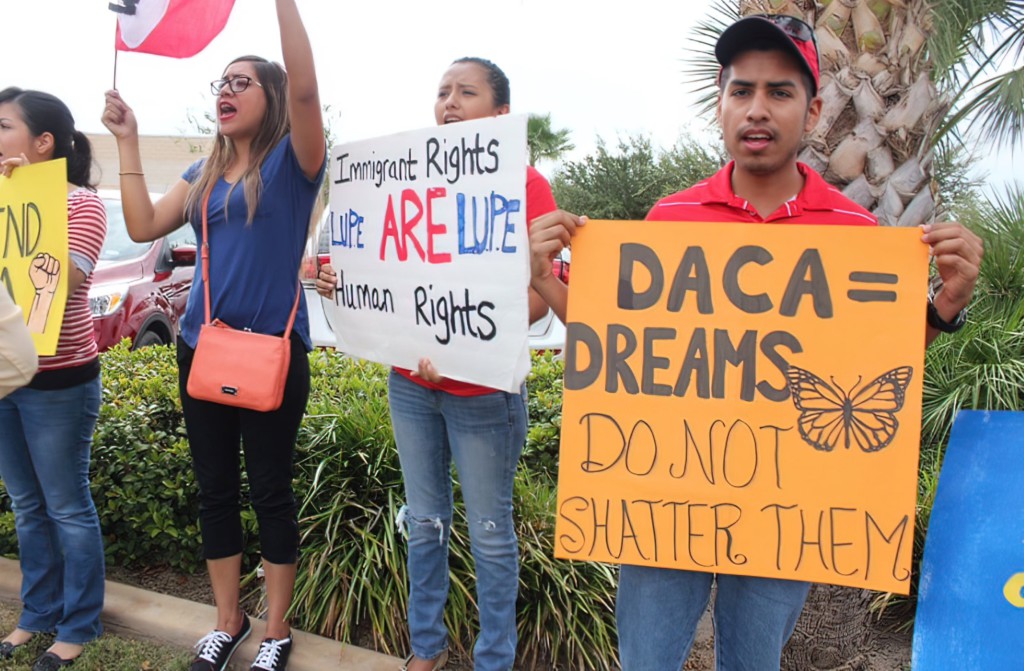
Rio Grande Valley youth protesting in support of immigrants who qualify for DACA at University of Texas Rio Grande Valley – Edinburg campus. Photo from La Union del Pueblo Entero, one of the I-Belong Fund’s 2023 inaugural Community of Practice Power Builder grantees.
How will the “Community of Practice” work?
Rojas: I-Belong is more than a fund, but rather a collaborative that is inclusive of the broader immigration movement. The lead facilitator, Define American, will co-design a rigorous narrative learning curriculum that will provide 10 BIPOC, immigrant-led organizations an opportunity to learn, create, and build new narratives targeting movable middle audiences. Each organization will be connected with experts to provide content creation and dissemination support.
What does I-Belong hope to accomplish, and by when?
Rojas: We hope to continue to build on this work and our own learnings for as long as it takes. Right now, it is a pilot two-year program. We were initially funded with funding from two anonymous donors. We are inviting others to join us.
How can funders support the fund?
Rojas: Our goal is to raise $6 million over the next three years. Donors and funders can join us in building narrative power to help us counter fear and polarization. Immigration is often a triggering issue, especially before major elections, so support is needed now. We welcome donors who are interested in uplifting immigrant-led organizations and promoting a pro-immigrant future and shared values of belonging to connect with us at [email protected] and support the fund by donating here.
More information about the I-Belong Independent Advisory Committee:
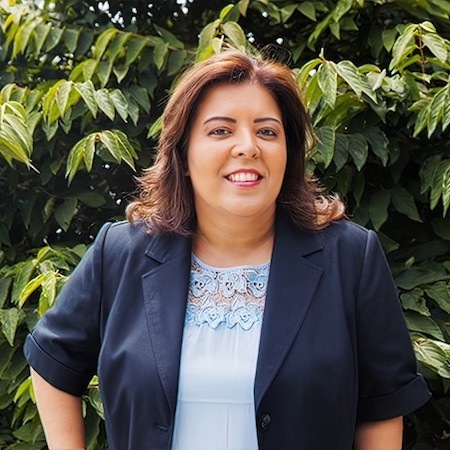 Alex Rojas [she/her/ella] is a senior philanthropic advisor at Tides. A proud immigrant from the Dominican Republic, she has demonstrated passionate leadership in creating strategic investments for community-led solutions over her almost 30-year career. Rojas is an accomplished professional in the areas of immigration, nonprofit administration, and civic participation. She currently serves as fund manager of Immigrants Belong at Tides, helping to build and leverage the narrative and storytelling power of immigrant communities.
Alex Rojas [she/her/ella] is a senior philanthropic advisor at Tides. A proud immigrant from the Dominican Republic, she has demonstrated passionate leadership in creating strategic investments for community-led solutions over her almost 30-year career. Rojas is an accomplished professional in the areas of immigration, nonprofit administration, and civic participation. She currently serves as fund manager of Immigrants Belong at Tides, helping to build and leverage the narrative and storytelling power of immigrant communities.
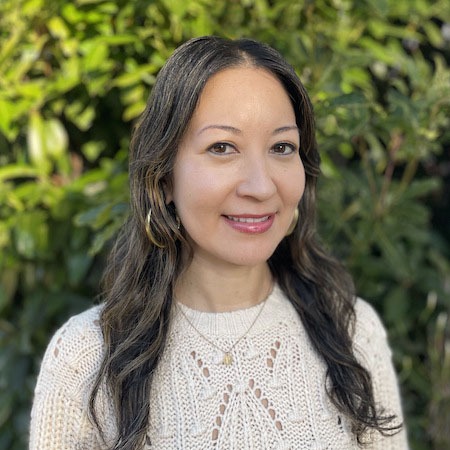 Paola Kim [she/her] is a philanthropic advisor at Tides Foundation who is passionate about supporting social justice and equity on a range of issues and giving models. She works with philanthropic partners who seek to advance equitable access and who want to support advocacy and policy reforms that help create systemic changes and help marginalized communities thrive.
Paola Kim [she/her] is a philanthropic advisor at Tides Foundation who is passionate about supporting social justice and equity on a range of issues and giving models. She works with philanthropic partners who seek to advance equitable access and who want to support advocacy and policy reforms that help create systemic changes and help marginalized communities thrive.
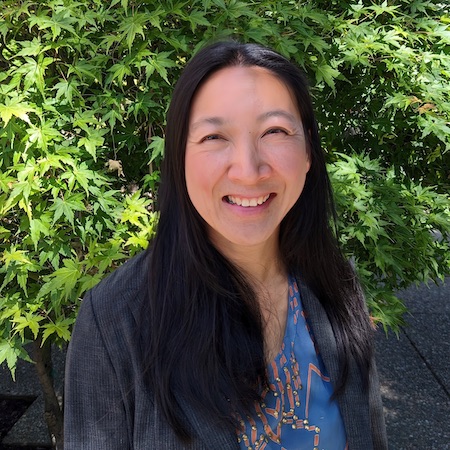 Dawn Kwan [she/her] is a senior advisor for Tides’ Corporate Social Impact and Strategic Initiatives team who has worked on several immigration-related projects at Tides. She guided the employee pro bono consulting projects for GitHub’s immigration social impact work with grassroots nonprofits, and led Tides’ Immigration United Collaborative, which invested and built capacity for technology tools for the immigration sector.
Dawn Kwan [she/her] is a senior advisor for Tides’ Corporate Social Impact and Strategic Initiatives team who has worked on several immigration-related projects at Tides. She guided the employee pro bono consulting projects for GitHub’s immigration social impact work with grassroots nonprofits, and led Tides’ Immigration United Collaborative, which invested and built capacity for technology tools for the immigration sector.
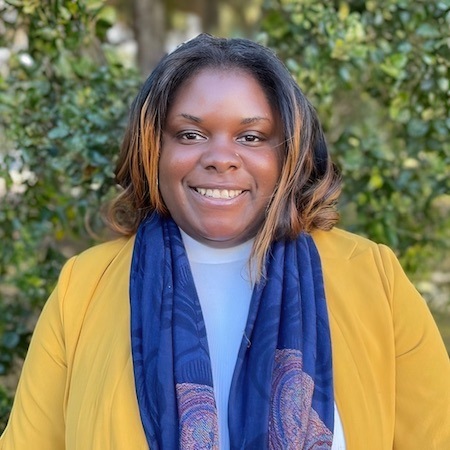 Ashley Black [she/her] is an associate with Tides Foundation. She is an equity-centered researcher and project manager who specializes in translating research, data, and community expertise into contextualized learnings and strategies that support equitable and sustainable change. She is committed to shifting power and resources to historically resilient communities, and she’s honored to offer her skills and positioning in support of changing the immigrant narrative.
Ashley Black [she/her] is an associate with Tides Foundation. She is an equity-centered researcher and project manager who specializes in translating research, data, and community expertise into contextualized learnings and strategies that support equitable and sustainable change. She is committed to shifting power and resources to historically resilient communities, and she’s honored to offer her skills and positioning in support of changing the immigrant narrative.

Healthy Individuals & Communities
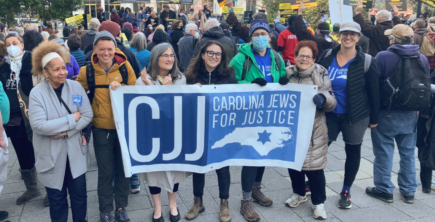
Our Community

Philanthropy

Read the stories and hear the voices of social change leaders fighting for justice.